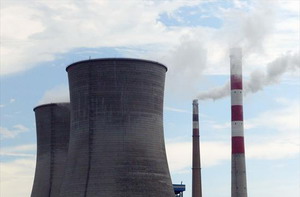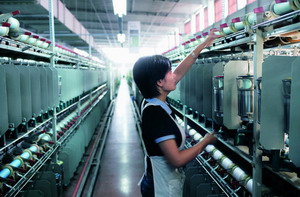China develops sustainable agriculture
Updated: 2011-08-25 10:57
(Xinhua)
|
|||||||||||
STOCKHOLM-- The proportion of agricultural water usage in China decreased by 15 percent from the level 10 years ago thanks to new technologies, said a Chinese agricultural expert on Wednesday.
As most grain production areas locate in northern China while the abundant rain and water stay in the South, the uneven distribution of water and grain production has been a key challenge to China, Professor Mei Xurong from Chinese Academy of Agricultural Science(CAAS) said in an exclusive interview with Xinhua during the World Water week in Stockholm.
Thus a lot of measures have been taken in a bid to use water more economically over the past decade, including the well-known spraying irrigation technique and usage of plastic covers.
"Plastic cover helps contain rain water in the land and the water evaporates through the plants. By this way, the production has been substantially increased with limited rain water," said Mei.
Take the northwest Gansu Province, a drought-frequent area, as an example. Farmers there can harvest 897 kilograms corn with 300 millimeter rainfall, or 1,000 kilograms corn with only 250 cubic meter of water, compared with 1,000 cubic meter of water used for the same production in other areas.
Utilization of recycled water from urban areas has also been experimented. "If the waste water has met the treating standards, then it can become a good water source complement for agriculture or for refilling the ground water," said Mei.
To make Chinese agriculture more sustainable, China has begun to utilize the traditional organic fertilizer again with modern technology, such as slicing the straw of corn, wheat or rice and putting it back to mix in the soil by machines.
"As a result, farmers don't need to use plenty of chemical fertilizer anymore," Mei said.
He proposed that environmental engineering technology, such as planting with greenhouses, should be used more broadly, with an aim of saving land while increasing production.
As Deputy Director General of Center for Water Resources and Conservation Technologies of CAAS, Professor Mei said China would continue its efforts in technical innovation in saving both water and land as well as other related resources in agriculture.
During the World Water Week, Chinese water experts also presented China's successful rain water harvesting system in Beijing's Olympic Village and the water management efforts in Songhua River, northeastern China.
During the week-long annual conference which opened here on Monday, issues relating to water resources are to be discussed.
Related Stories
Promoting a 'save and grow' approach to agriculture 2011-07-01 13:16
China invests 1.84b yuan for agriculture 2011-06-06 13:33
China's agriculture sector faces rising costs in 2011 2011-04-20 09:34
Support agriculture to 'curb inflation' 2011-03-21 10:51
- China facing pressure from US, EU debts
- CNOOC's H1 net profit jumps 51.4%
- China Life plans 'more regular' issues of debt
- UPS to open new branch in Central China
- ODI dips in July, year's first slide
- China may open seed market
- China's trade surplus falls to 1.44% of GDP in H1
- CPIC to invest $11b in Xinjiang













